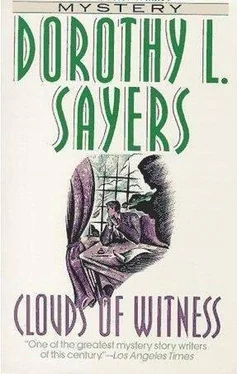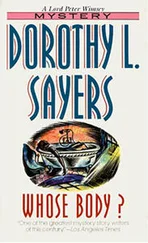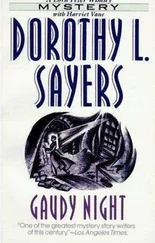Dorothy Sayers - Clouds of Witness
Здесь есть возможность читать онлайн «Dorothy Sayers - Clouds of Witness» — ознакомительный отрывок электронной книги совершенно бесплатно, а после прочтения отрывка купить полную версию. В некоторых случаях можно слушать аудио, скачать через торрент в формате fb2 и присутствует краткое содержание. Жанр: Классический детектив, на английском языке. Описание произведения, (предисловие) а так же отзывы посетителей доступны на портале библиотеки ЛибКат.
- Название:Clouds of Witness
- Автор:
- Жанр:
- Год:неизвестен
- ISBN:нет данных
- Рейтинг книги:4 / 5. Голосов: 1
-
Избранное:Добавить в избранное
- Отзывы:
-
Ваша оценка:
- 80
- 1
- 2
- 3
- 4
- 5
Clouds of Witness: краткое содержание, описание и аннотация
Предлагаем к чтению аннотацию, описание, краткое содержание или предисловие (зависит от того, что написал сам автор книги «Clouds of Witness»). Если вы не нашли необходимую информацию о книге — напишите в комментариях, мы постараемся отыскать её.
Clouds of Witness — читать онлайн ознакомительный отрывок
Ниже представлен текст книги, разбитый по страницам. Система сохранения места последней прочитанной страницы, позволяет с удобством читать онлайн бесплатно книгу «Clouds of Witness», без необходимости каждый раз заново искать на чём Вы остановились. Поставьте закладку, и сможете в любой момент перейти на страницу, на которой закончили чтение.
Интервал:
Закладка:
"But something arrests him. Not that! Not that! He sees in fancy his own hideously disfigured corpse-the shattered jaw-the burst eyeball-blood and brains horribly splashed about. No. Let the bullet go cleanly to the heart. Not even in death can he bear the thought of looking-so!
"He places the revolver against his breast and draws the trigger. With a little moan, he drops to the sodden ground. The weapon falls from his hand; his fingers scrabble a little at his breast.
"The gamekeeper who heard the shot is puzzled that poachers should come so close. Why are they not on the moors? He thinks of the hares in the plantation. He takes his lantern and searches in the thick drizzle. Nothing. Only soggy grass and dripping trees. He is human. He concludes his ears deceived him, and he returns to his warm bed. Midnight passes. One o'clock passes.
"The rain is less heavy now. Look! In the shrubbery-what was that? A movement. The shot man is moving-groaning a little-crawling to his feet. Chilled to the bone, weak from loss of blood, shaking with the fever of his wound, he but dimly remembers his purpose. His groping hands go to the wound in his breast. He pulls out a handkerchief and presses it upon the place. He drags himself up, slipping and stumbling. The handkerchief slides to the ground, and lies there beside the revolver among the fallen leaves.
"Something in his aching brain tells him to crawl back to the house. He is sick, in pain, hot and cold by turns, and horribly thirsty. There someone will take him in and be kind to him-give him things to drink. Swaying and starting, now falling on hands and knees, now reeling to and fro, he makes that terrible nightmare journey to the house. Now he walks, now he crawls dragging his heavy limbs after him. At last, the conservatory door! Here there will be help. And water for his fever in the trough by the well. He crawls up to it on hands and knees, and strains to lift himself. It is growing very difficult to breathe-a heavy weight seems to be bursting his chest. He lifts himself-a frightful hiccuping cough catches him-the blood rushes from his mouth. He drops down. It is indeed all over.
"Once more the hours pass. Three o'clock, the hour of rendezvous, draws on. Eagerly the young lover leaps the wall and comes hurrying through the shrubbery to greet his bride to be. It is cold and wet, but his happiness gives him no time to think of his surroundings. He passes through the shrubbery without a thought. He reaches the conservatory door, through which in a few moments love and happiness will come to him. And in that moment he stumbles across-the dead body of a man!
"Fear possesses him. He hears a distant footstep. With but one idea-escape from this horror of horrors-he dashes into the shrubbery, just as, fatigued perhaps a little, but with a mind soothed by his little expedition, the Duke of Denver comes briskly up the path, to meet the eager bride over the body of her betrothed.
"My lords, the rest is clear. Lady Mary Wimsey, forced by a horrible appearance of things into suspecting her lover of murder, undertook-with what courage every man amongst you will realise-to conceal that George Goyles ever was upon the scene. Of this ill-considered action of hers came much mystery and perplexity. Yet, my lords, while chivalry holds its own, not one amongst us will breathe one word of blame against that gallant lady. As the old song says:
"God send each man at his end
Such hawks such hounds, and…"
"I think, my lords, that there [missing] me to say. To you I leave the [missing] of freeing the noble peer, your [missing] unjust charge. You are but human, [garbled] among you will have grumbled, on assuming these mediaeval splendid [missing] ermine, so foreign to the taste and [missing] age. You know well enough that
"'Tis not the balm, the sceptre
The sword, the mace, the crou
The intertissued robe of gold
The farced title, nor the tide all
That beats upon the high shore
that can add any dignity to noble,
have beheld, day after day, the head
and noblest houses in England sta
from your fellowship, stripped off
robed only in the justice of his cause
failed to move your pity and indigo
"My lords, it is your happy privilege [missing] his grace the Duke of Denver these [missing] of his exalted rank. When the clerk [missing] address to you severally the solemn [missing] find Gerald, Duke of Denver, [missing] guilty or not guilty of the dreadful [missing] every one of you may, with a confidence [missing] any shadow of doubt, lay his hand and say, 'Not guilty, upon my honour.'"
CHAPTER XIX
" Drunk as a lord? As a class they are really very sober. "
– Judge Cluer, in court
While the Attorney-General was engaged in the ungrateful task of trying to obscure what was not only plain, but agreeable to everybody's feelings, Lord Peter hauled Parker off to a Lyons over the way, and listened, over an enormous dish of eggs and bacon, to a brief account of Mrs. Grimethorpe's dash to town, and a long one of Lady Mary's cross-examination.
"What are you grinning about?" snapped the narrator.
"Just natural imbecility," said Lord Peter. "I say, poor old Cathcart. She was a girl! For the matter of that, I suppose she still is. I don't know why I should talk as if she'd died away the moment I took my eyes off her."
"Horribly self-centred, you are," grumbled Mr. Parker.
"I know. I always was from a child. But what worries me is that I seem to be gettin' so susceptible. When Barbara turned me down-"
"You're cured," said his friend brutally. "As a matter of fact, I've noticed it for some time."
Lord Peter sighed deeply. "I value your candour, Charles," he said, "but I wish you hadn't such an unkind way of putting things. Besides- I say, are they coming out?"
The crowd in Parliament Square was beginning to stir and spread. Sparse streams of people began to drift across the street. A splash of scarlet appeared against the grey stone of St. Stephen's. Mr. Murbles's clerk dashed in suddenly at the door.
"All right, my lord-acquitted-unanimously-and will you please come across, my lord?"
They ran out. At sight of Lord Peter some excited bystanders raised a cheer. The great wind tore suddenly through the Square, bellying out the scarlet robes of the emerging peers. Lord Peter was bandied from one to the other, till he reached the centre of the group.
"Excuse me, your grace."
It was Bunter. Bunter, miraculously, with his arms full of scarlet and ermine, enveloping the shameful blue serge suit which had been a badge of disgrace.
"Allow me to offer my respectful congratulations, your grace."
"Bunter!" cried Lord Peter. "Great God, the man's gone mad! Damn you, man, take that thing away," he added, plunging at a tall photographer in a made-up tie.
"Too late, my lord," said the offender, jubilantly pushing in the slide.
"Peter," said the Duke. "Er-thanks, old man."
"All right," said his lordship. "Very jolly trip and all that. You're lookin' very fit. Oh, don't shake hands-there, I knew it! I heard that man's confounded shutter go."
They pushed their way through the surging mob to the cars. The two Duchesses got in, and the Duke was following, when a bullet crashed through the glass of the window, missing Denver's head by an inch, and ricocheting from the wind-screen among the crowd.
A rush and a yell. A big bearded man struggled for a moment with three constables; then came a succession of wild shots, and a fierce rush-the crowd parting, then closing in, like hounds on the fox, streaming past the Houses of Parliament, heading for Westminster Bridge.
"He's shot a woman-he's under that 'bus-no, he isn't-hi!-murder!-stop him!" Shrill screams and yells-police whistles blowing-constables darting from every corner-swooping down in taxis-running.
Читать дальшеИнтервал:
Закладка:
Похожие книги на «Clouds of Witness»
Представляем Вашему вниманию похожие книги на «Clouds of Witness» списком для выбора. Мы отобрали схожую по названию и смыслу литературу в надежде предоставить читателям больше вариантов отыскать новые, интересные, ещё непрочитанные произведения.
Обсуждение, отзывы о книге «Clouds of Witness» и просто собственные мнения читателей. Оставьте ваши комментарии, напишите, что Вы думаете о произведении, его смысле или главных героях. Укажите что конкретно понравилось, а что нет, и почему Вы так считаете.












